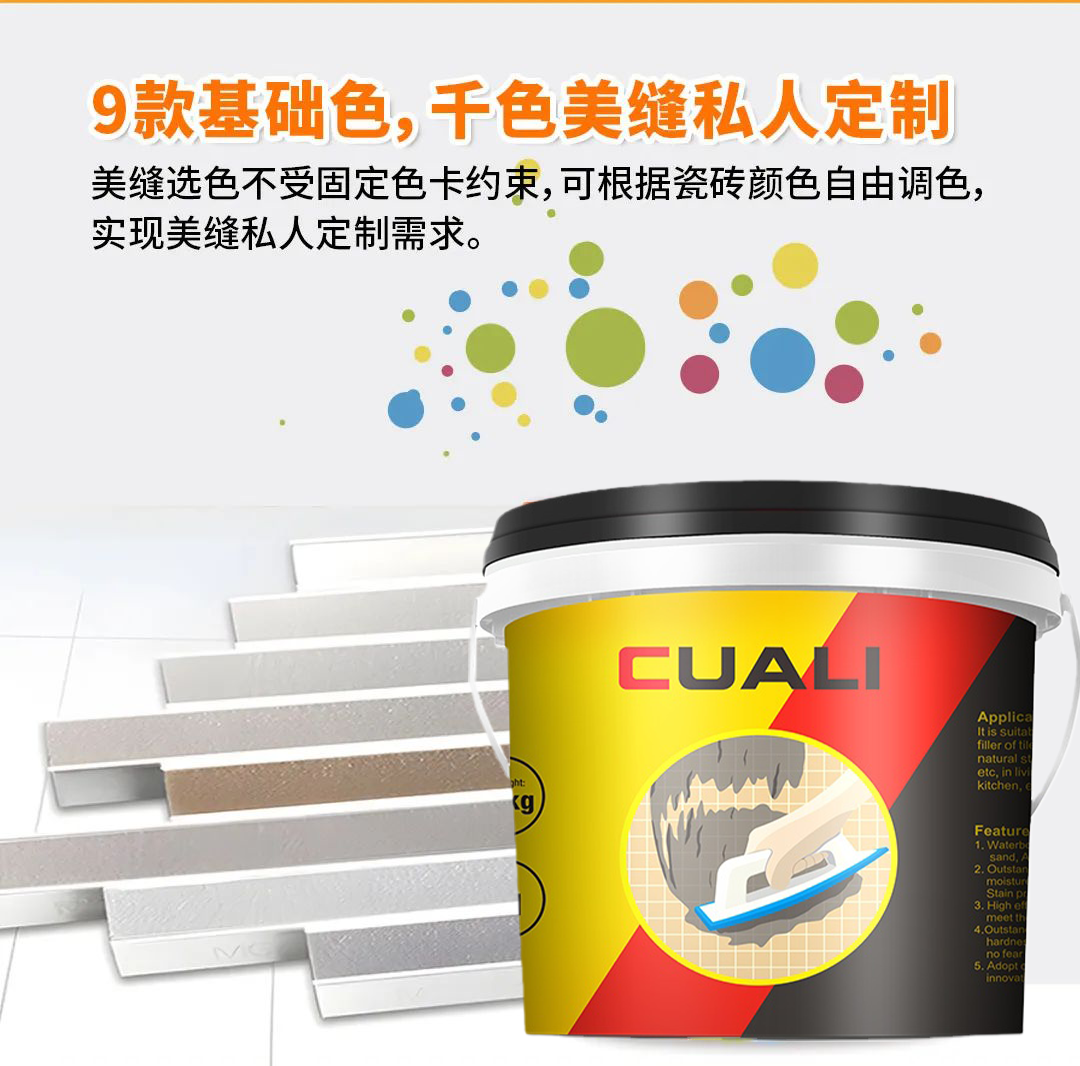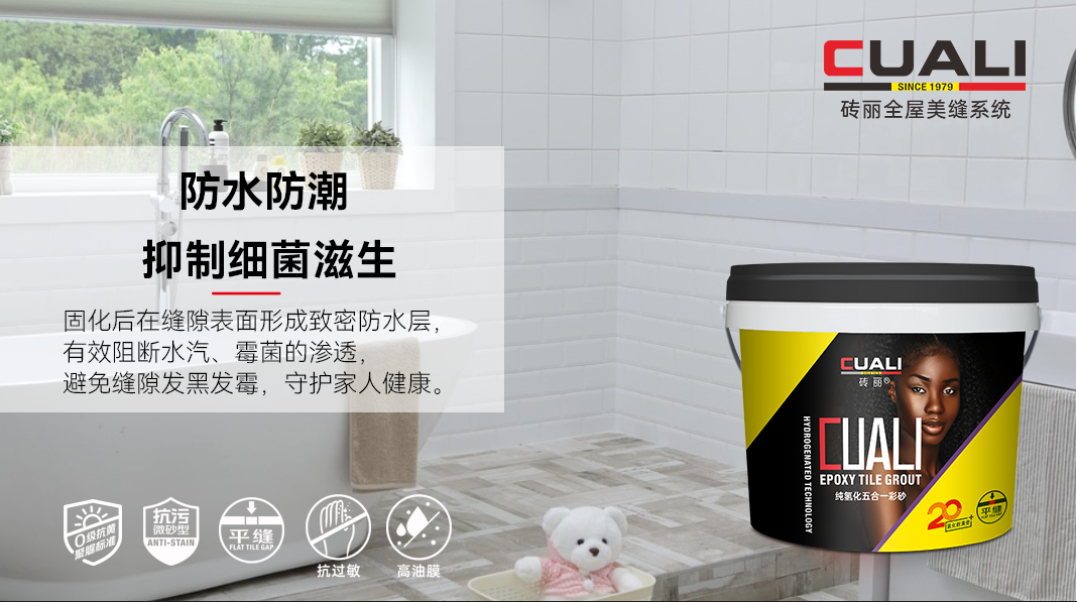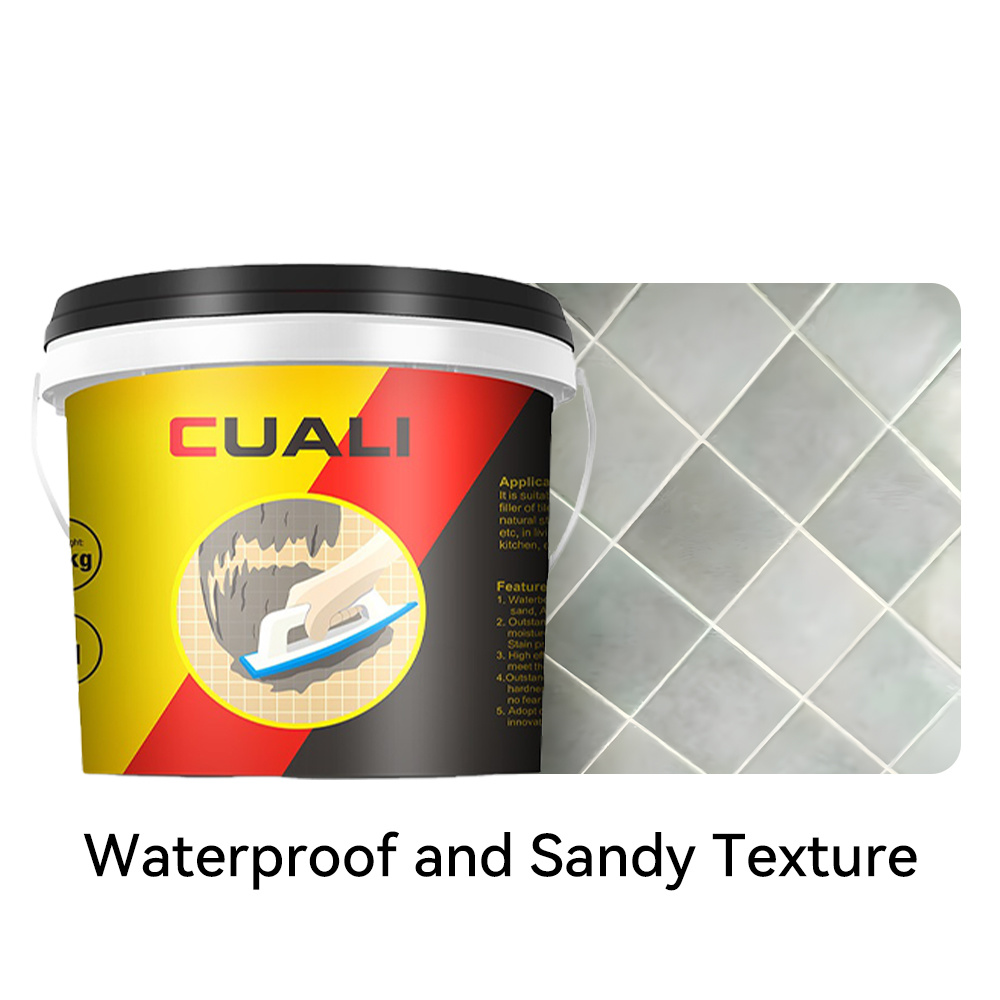
What are the Advantages of Water-Based Ceramic Tile Adhesive?
Water-based ceramic tile adhesive has emerged as a game-changer in tiling projects, offering a range of benefits that set it apart from traditional cement-based adhesives. Its key advantages include strong bonding performance, eco-friendliness, easy application, versatility across surfaces, and resistance to water and moisture.
- Exceptional Bonding Strength
Traditional cement-based adhesives often struggle with bonding to large-format tiles or non-porous surfaces like glass or polished stone, leading to tile detachment over time.
Water-based ceramic tile adhesive, however, forms a powerful molecular bond with tile backs and substrates. Its formula penetrates micro-pores in tile surfaces, creating a secure grip that withstands heavy loads and structural movements. Even for heavy tiles (over 30kg per piece) or vertical installations like shower walls, it maintains long-term adhesion, reducing the risk of tiles falling off.
- Eco-Friendly and Safe for Indoor Use
Cement-based adhesives may contain harmful additives or release dust during mixing, which can irritate respiratory systems. They also often require toxic primers to enhance adhesion, adding to indoor air pollution.
Water-based tile adhesive is formulated with low volatile organic compounds (VOCs) and free from formaldehyde or heavy metals. It emits no harmful fumes during application, making it safe for use in homes, schools, and hospitals. Its water-based composition also reduces dust, creating a healthier working environment for installers and ensuring better indoor air quality for occupants.
- Easy Application and Time-Saving
Mixing and applying traditional cement adhesives can be labor-intensive, requiring precise water-to-powder ratios and quick work before the mixture sets. This often leads to uneven application or wasted material, especially for novice installers.
Water-based tile adhesive simplifies the process: it comes ready to use or requires minimal water addition, with a smooth, consistent texture that spreads easily. Its longer open time (up to 30 minutes) allows installers to adjust tiles without rushing, ensuring proper alignment. Cleanup is also hassle-free—spilled adhesive can be wiped away with water before drying, eliminating the need for harsh solvents.
- Versatility Across Surfaces and Tiles
Cement-based adhesives are limited in compatibility, often failing on surfaces like painted walls, plywood, or existing tile. They also struggle with delicate tiles (e.g., marble or handmade ceramics) that may absorb moisture unevenly. ???????
???????
Water-based tile adhesive adapts to a wide range of substrates, including concrete, drywall, wood, and even old tiles. It works with all tile types—from ceramic and porcelain to natural stone and glass—without causing discoloration or damage. This versatility makes it ideal for renovation projects where multiple surfaces and tile materials are involved.
- Water Resistance and Mold Prevention
Bathrooms, kitchens, and basements are prone to moisture, and cement-based adhesives can absorb water, weakening bonds and fostering mold growth beneath tiles.
Water-based tile adhesive forms a waterproof barrier once cured, resisting water penetration even in wet areas like showers or swimming pool surrounds. Its moisture-resistant properties prevent mold and mildew from thriving between tiles and substrates, extending the lifespan of tiling projects and reducing maintenance needs.
Summary:
Water-based ceramic tile adhesive outperforms traditional cement-based options with its strong bonding strength, eco-friendly formulation, easy application, surface versatility, and water resistance. These advantages make it a reliable choice for both residential and commercial tiling projects, ensuring durable, safe, and hassle-free installations.
Time:
2025-07-15
More News
